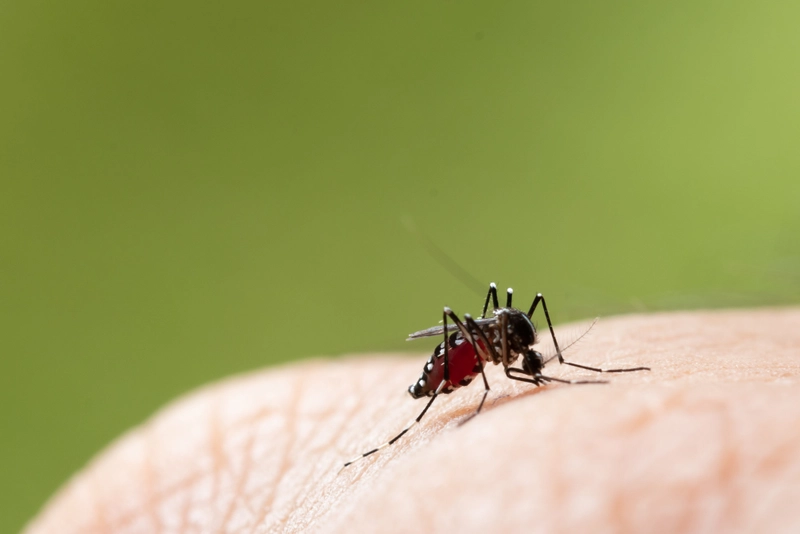- Published on: Sep 05, 2021
- 3 minute read
- By: Second Medic Wellness Expert
Healthy Living Simple Tips For Vibrant Wellness
Are you tired of feeling lifeless and rundown? Do you want to live a vibrant and fulfilling life? Well, you're in the right place! In this blog, we're going to explore some simple yet effective ways to keep yourself healthy and full of energy. Whether you're looking to improve your diet, include more exercise in your routine, or simply adopt healthier habits, we've got you covered. So, hold a seat, and let's dive into the world of wellness.
Understanding the Basics of Health
Before we delve into the nitty-gritty of healthy living, let's take a moment to understand what it means to be healthy. At its core, being healthy involves nourishing both your body and mind, allowing them to function optimally. It's about finding a balance between nutritious food, regular exercise, adequate rest, and emotional well-being.
The Key Ingredients for a Healthy Lifestyle
Now that we've established the importance of health, let's talk about the key ingredients for maintaining a healthy lifestyle. These include:
-
Healthy Food: Fueling your body with nutritious foods such as fruits, vegetables, lean proteins, and whole grains.
-
Regular Exercise: Incorporating physical activity into your daily routine to strengthen your muscles, improve your cardiovascular health, and boost your mood.
-
Adequate Rest: Ensuring you get enough sleep each night to allow your body to repair and recharge.
-
Stress Management: Finding healthy ways to cope with stress, such as meditation, deep breathing exercises, or spending time in nature.
-
Positive Relationships: Surround yourself with supportive friends and family members who uplift and encourage you.
-
Regular Check-ups: Visiting your healthcare provider for routine check-ups and screenings to detect any potential health issues early on.
Why Should You Prioritize Your Health
You might be wondering, why should I prioritize my health? Well, the benefits of maintaining a healthy diet are numerous and far-reaching. Not only will you feel more energetic and vibrant, but you'll also reduce your risk of chronic diseases such as diabetes, heart disease, and certain cancers. Additionally, you'll enjoy better mental health, improved self-esteem, and a greater overall sense of well-being.
Simple Tips for a Healthier You
Now that you're aware of the importance of prioritizing your health let's discuss some actionable tips to help you achieve your wellness goals:
Healthy Food
-
Start your day with a nutritious breakfast to kickstart your metabolism.
-
Incorporate plenty of fruits and vegetables into your meals for added vitamins and minerals.
-
Limit processed foods, sugary snacks, and unhealthy fats, opting for whole, unprocessed options instead.
Regular Exercise
-
Find activities you enjoy, whether it's walking, swimming, dancing, or cycling, and aim for at least 30 minutes of moderate exercise most days of the week.
-
Break up long periods of sitting by taking short walks or stretching throughout the day.
-
Don't forget to incorporate strength training exercises to build muscle and improve bone density.
Adequate Rest
-
Create a relaxing bedtime routine to signal to your body that it's time to wind down.
-
Aim for 7-9 hours of quality sleep each night, prioritizing consistency in your sleep schedule.
-
Limit screen time before bed, as the blue light emitted from electronic devices can interfere with your body's natural sleep-wake cycle.
Stress Management
-
Practice mindfulness and relaxation techniques such as yoga, meditation, or deep breathing exercises.
-
Engage in activities that bring you joy and help you unwind, whether it's reading, gardening, or listening to music.
-
Don't be afraid to seek support from friends, family, or a mental health professional if you're feeling overwhelmed.
Positive Relationships
Cultivate meaningful connections with others by spending quality time together and nurturing your relationships.
Surround yourself with people who uplift and support you, and don't be afraid to set boundaries with those who drain your energy.
Regular Check-ups
-
Schedule routine check-ups with your healthcare provider to monitor your health and address any concerns.
-
Be proactive about preventive care, such as vaccinations, screenings, and health assessments, to catch any potential issues early on.
Conclusion:
prioritizing your health is one of the best investments you can make in yourself. By adopting simple yet effective lifestyle changes, such as eating nutritious foods, staying active, getting enough rest, managing stress, nurturing positive relationships, and seeking regular medical care, you can enjoy a vibrant and fulfilling life. So, why wait? Start implementing these tips today and take control of your health and well-being.
Read FAQs
A. A healthy lifestyle involves maintaining a balanced diet with fruits, veggies, and whole grains, regular exercise, sufficient sleep, stress management, and positive relationships. Hydration, limiting alcohol and processed foods, good hygiene, and seeking medical advice when needed are also crucial.
A. Staying healthy encompasses various habits, including a diverse diet, lean proteins, a mix of exercises, quality sleep, portion control, hydration, and stress reduction. Choosing whole foods, stretching breaks, fostering positive thinking, setting achievable goals, and social connections contribute to overall well-being.
A. For a healthy lifestyle, focus on a colorful diet, regular exercise, hydration, quality sleep, and stress management. These fundamental tips can significantly impact your physical and mental well-being.










